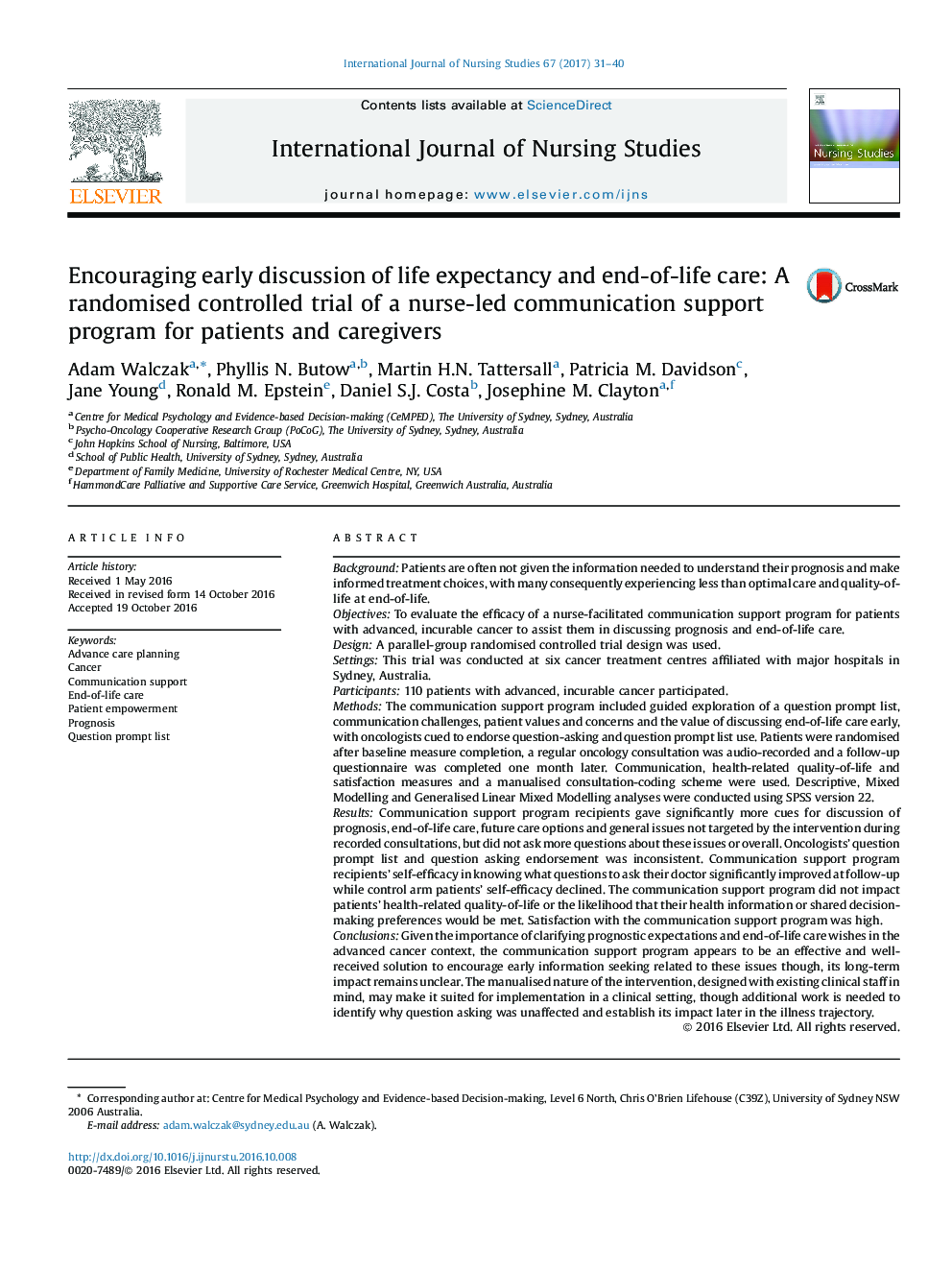| کد مقاله | کد نشریه | سال انتشار | مقاله انگلیسی | نسخه تمام متن |
|---|---|---|---|---|
| 5121088 | 1486502 | 2017 | 10 صفحه PDF | دانلود رایگان |
BackgroundPatients are often not given the information needed to understand their prognosis and make informed treatment choices, with many consequently experiencing less than optimal care and quality-of-life at end-of-life.ObjectivesTo evaluate the efficacy of a nurse-facilitated communication support program for patients with advanced, incurable cancer to assist them in discussing prognosis and end-of-life care.DesignA parallel-group randomised controlled trial design was used.SettingsThis trial was conducted at six cancer treatment centres affiliated with major hospitals in Sydney, Australia.Participants110 patients with advanced, incurable cancer participated.MethodsThe communication support program included guided exploration of a question prompt list, communication challenges, patient values and concerns and the value of discussing end-of-life care early, with oncologists cued to endorse question-asking and question prompt list use. Patients were randomised after baseline measure completion, a regular oncology consultation was audio-recorded and a follow-up questionnaire was completed one month later. Communication, health-related quality-of-life and satisfaction measures and a manualised consultation-coding scheme were used. Descriptive, Mixed Modelling and Generalised Linear Mixed Modelling analyses were conducted using SPSS version 22.ResultsCommunication support program recipients gave significantly more cues for discussion of prognosis, end-of-life care, future care options and general issues not targeted by the intervention during recorded consultations, but did not ask more questions about these issues or overall. Oncologists' question prompt list and question asking endorsement was inconsistent. Communication support program recipients' self-efficacy in knowing what questions to ask their doctor significantly improved at follow-up while control arm patients' self-efficacy declined. The communication support program did not impact patients' health-related quality-of-life or the likelihood that their health information or shared decision-making preferences would be met. Satisfaction with the communication support program was high.ConclusionsGiven the importance of clarifying prognostic expectations and end-of-life care wishes in the advanced cancer context, the communication support program appears to be an effective and well-received solution to encourage early information seeking related to these issues though, its long-term impact remains unclear. The manualised nature of the intervention, designed with existing clinical staff in mind, may make it suited for implementation in a clinical setting, though additional work is needed to identify why question asking was unaffected and establish its impact later in the illness trajectory.
Journal: International Journal of Nursing Studies - Volume 67, February 2017, Pages 31-40
